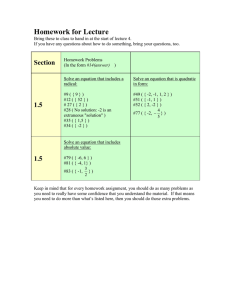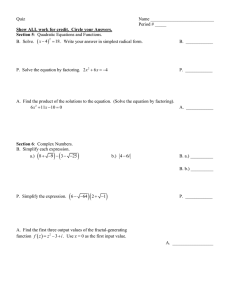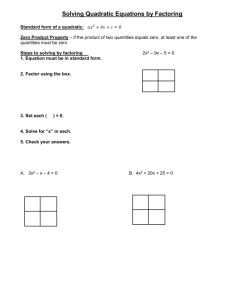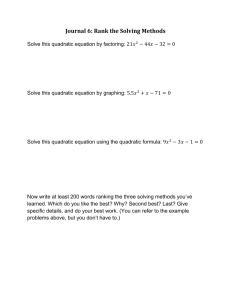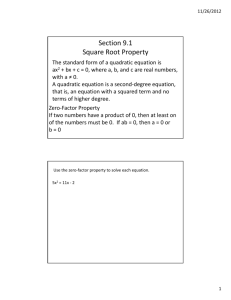Pg. 282-287 ACT 1-2
advertisement
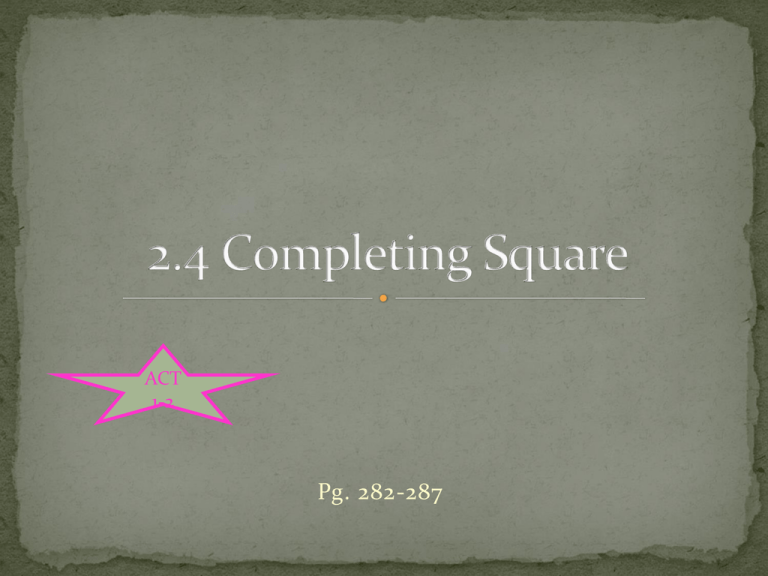
ACT 1-2 Pg. 282-287 F-IF.8a: Use the process of factoring and completing the square in a quadratic function to show zeros, extreme values, and symmetry of the graph, and interpret these in terms of a context. F-IF.4: For a function that models a relationship between two quantities, interpret key features of graphs and tables in terms of the quantities, and sketch graphs showing key features given a verbal description of the relationship. Key features include: intercepts; intervals where the function is increasing, decreasing, positive, or negative; relative maximums and minimums; symmetries; end behavior; and periodicity.* Write a function defined by an expression in different but equivalent forms to reveal and explain different properties of the function. Solve quadratic equations in one variable. – b. Solve quadratic equations by inspection (e.g., for x2 = 49), taking square roots, completing the square, the quadratic formula and factoring, as appropriate to the initial form of the equation. Recognize when the quadratic formula gives complex solutions and write them as a ± bi for real numbers a and b. Write a Quadratic Function for each of the following AND apply Zero-Product property: 1) (x-3)(x-3) 2) (2x-1)(2x+1) 1. Collect variable terms on one side of the equation and constants on the other. 2. As needed, divide both sides by a to make the coefficient of the x2 term 1. ax2 + bx =c b 2 2 3. Complete the square by adding ( ) to both sides of the equation. 4. Factor the variable expression as a perfect square. 5. Take the square root of both sides of the equation. 6. Solve for the values of the variable. x2 + 10x + ____ = 36 + _____ x2 – 14x - _____ = 8 + ______ 3) x2 – 12x - 36 = 0 4) x2 + 4x + 48 = 49 4x2 – 8x + 1 = 49 3x2 + 27x -6 3) 4x2 + 20x – 16 4) 5x2 - 8x = 100 2x2 + 8x = 12 3x2 -24x -27 = 0 Solve the quadratic equation by completing the square: 2x2 + x = 6 x2 + 6x + 9 = 1 3x2 + 4x + 5 Vertex form of a parabola: y = a(x-h)2 + k Write y = x2 + 6x + 2 in vertex form.
